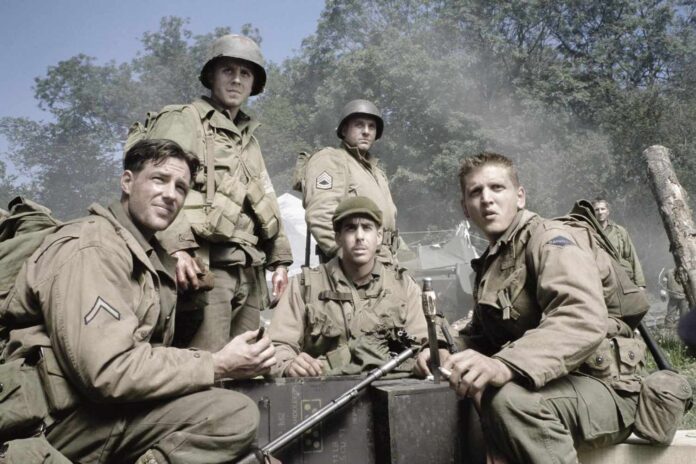Reporting from Camp Pendleton — —
On a sultry mid-July afternoon on this military base, a few hundred Marines, some with spouses and children in tow, were mustering for a free screening of the movie “Warrior” at a squat cement cinema house on Mainside, the section of the 200-square-mile facility reserved for civilian comforts like the Stars and Strikes bowling alley and Smokey’s House of BBQ.
In the film, which won’t arrive in theaters until September, a Marine just home from Iraq (played by Englishman Tom Hardy) and his estranged brother, a fighter-turned-teacher (Australian Joel Edgerton), train for a mixed martial arts tournament.
The military’s involvement ran deeper, though, than just throwing open the doors to the Bulldog Box Office at Camp Pendleton. The “Warrior” script was vetted by a Marine Corps liaison to the entertainment industry, and more than 200 real Marines appear in uniform in a crowd scene….
…Over the decades, the relationship between Hollywood and the military has served the needs of both sides: Filmmakers gain access to equipment, locations, personnel and information that lend their productions authenticity, while the armed forces get some measure of control over how they’re depicted.
Analysis
This article discusses the strong relationship between the military and Hollywood. Hollywood generates millions of dollars every year from movies. It’s interesting how strong a hold the military has on the military movies that Hollywood produces. This demonstrates that the military wants to be portrayed in a certain way. I find it interesting how the military still struggles with recruitment even with movies like “The Hurt Locker” streaming. The ads I’ve seen regarding military recruitment are weak. Why doesn’t the army use their connection with Hollywood to better create a recruitment ad? A billboard ad that proclaimed the the army “fights to win” was sad. Does military every fight to lose? How can media and entertainment change the perception of the military and find better ways to story tell what really happens in the army. How does this impact peoples’ perception of mass casualties? When movies portray these scenarios, does it better prepare civilians to respond?




